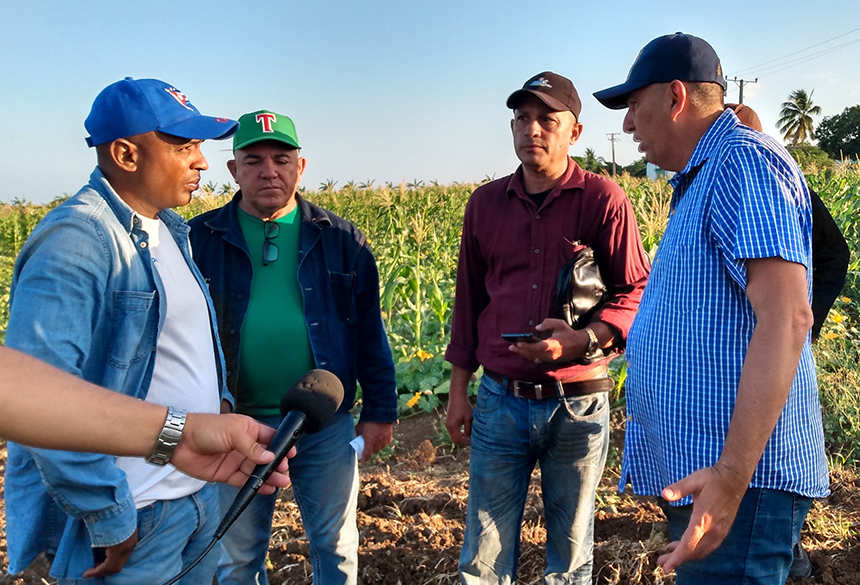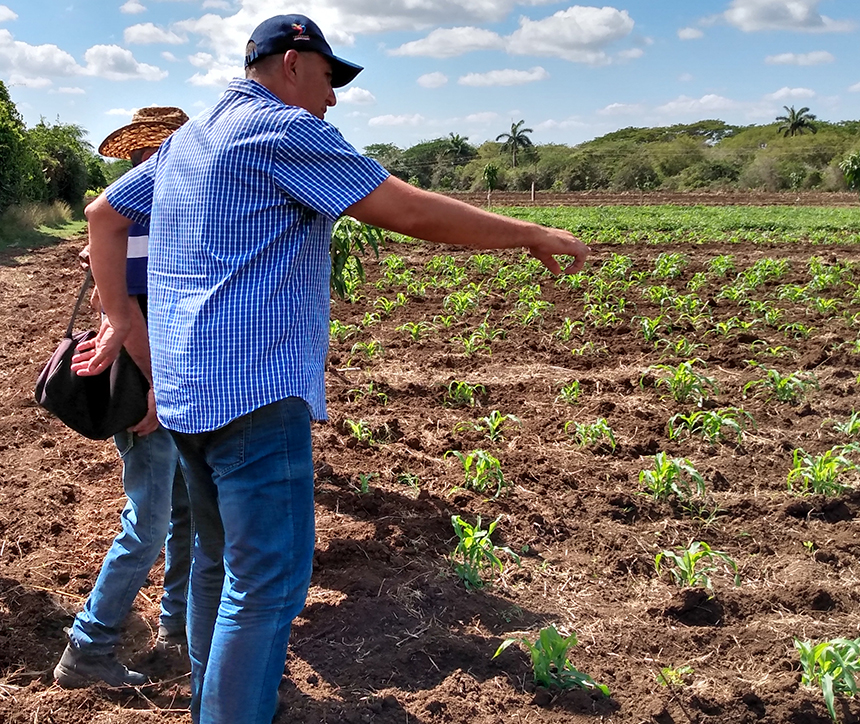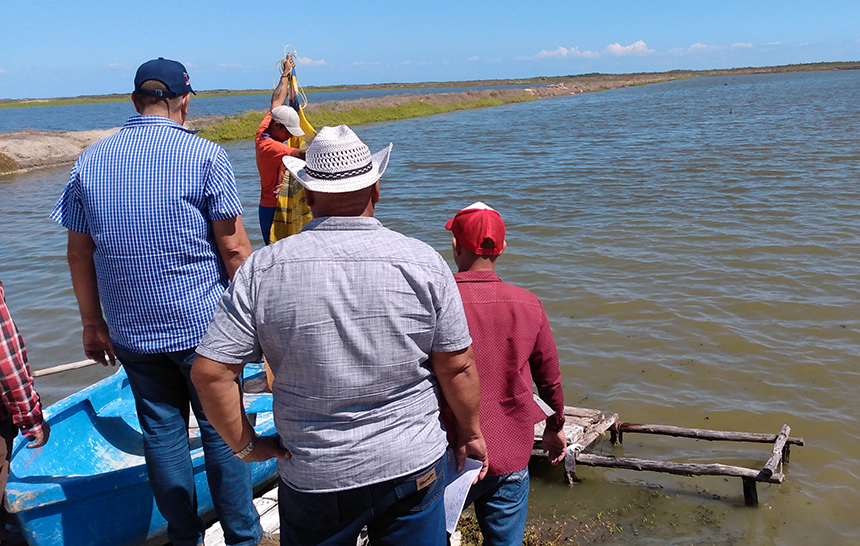
During a visit to the Melanio Ortiz productive pole, in Jobabo, the first secretary of the Provincial Committee of the Party (PCC in Spanish), Osbel Lorenzo Rodríguez, urged the agricultural sector of the territory to speed up its actions to increase the planting of viands, rice and other crops for the population.
Las Tunas, Cuba.- In this sense, he warned that time cannot be wasted and that it is urgent to apply alternatives to take advantage of the lands that are already prepared and that do not imply an extra expense of fuel, an insufficient resource in the current circumstances that the country is facing.
 He proposed starting a program to restore the existing infrastructure in the area, which supports various services for the 17 nearby productive units. This infrastructure includes a store for selling agricultural supplies, a house for technicians, and a branch of a bank.
He proposed starting a program to restore the existing infrastructure in the area, which supports various services for the 17 nearby productive units. This infrastructure includes a store for selling agricultural supplies, a house for technicians, and a branch of a bank.
Also in the municipality of Jobabo, the political leader toured the Antonio Fernández credit and services cooperative, whose members can produce more food and exceed the 755 tons contracted for the current year, especially corn.
In the Primero de Enero basic unit for cooperative production (UBPC), recently visited by the First Secretary of the Central Committee of the PCC, Miguel Díaz-Canel Bermúdez, specialists of the Agroindustrial Grain Enterprise explained the potential of the place for rice planting. They said the conditions are created to plant some 40 hectares, which would be added to the 60 already existing.
During the tour of the southern part of the province, Lorenzo Rodríguez arrived at the Los Manantiales farm, also visited by the Cuban president. At that site in “Colombia,” he appreciated the installation of the cultivation house, which will allow the continuous production of vegetables.
In that territory, he arrived at the Las Mercedes productive pole, with an important extension that will be incorporated into the planting of cassava and plantain, fundamentally, and that right now demands fuel to prepare the land before the arrival of rainfall.
At the SanRos shrimp farm, he learned about the effort to guarantee the care of the animals and the general results that place the unit among the best in the country; while at the Leningrado agricultural production cooperative, he pointed out that they must increase the areas of various crops and livestock for the 135 associates and the community.

At the Los Mangos farm, he learned about the experiences of a young producer who owns more than 70 pigs, poultry, and other animals to which he provides the required nutrients. However, to improve his performance, he needs to open a well to provide a stable water supply.
Finally, in "Amancio," he exchanged with two outstanding farmers from the Sabino Pupo and Lino Álvarez credit and service cooperatives, who are consolidating corn, cassava, and other crops for their commercialization in agricultural fairs and other markets.
He also visited the productive poles Lote 107 and El Almiquí; in the latter, he criticized the non-compliance with the agreement regarding the sowing of new areas and urged to speed up these tasks before heavy machinery is required for soil preparation.
Lorenzo Rodriguez's tour of the southern municipalities revealed their potential to promote food sovereignty. Likewise, it was demonstrated that results appear when there is control, initiative, and the will of the producers to overcome material limitations through constant work.





